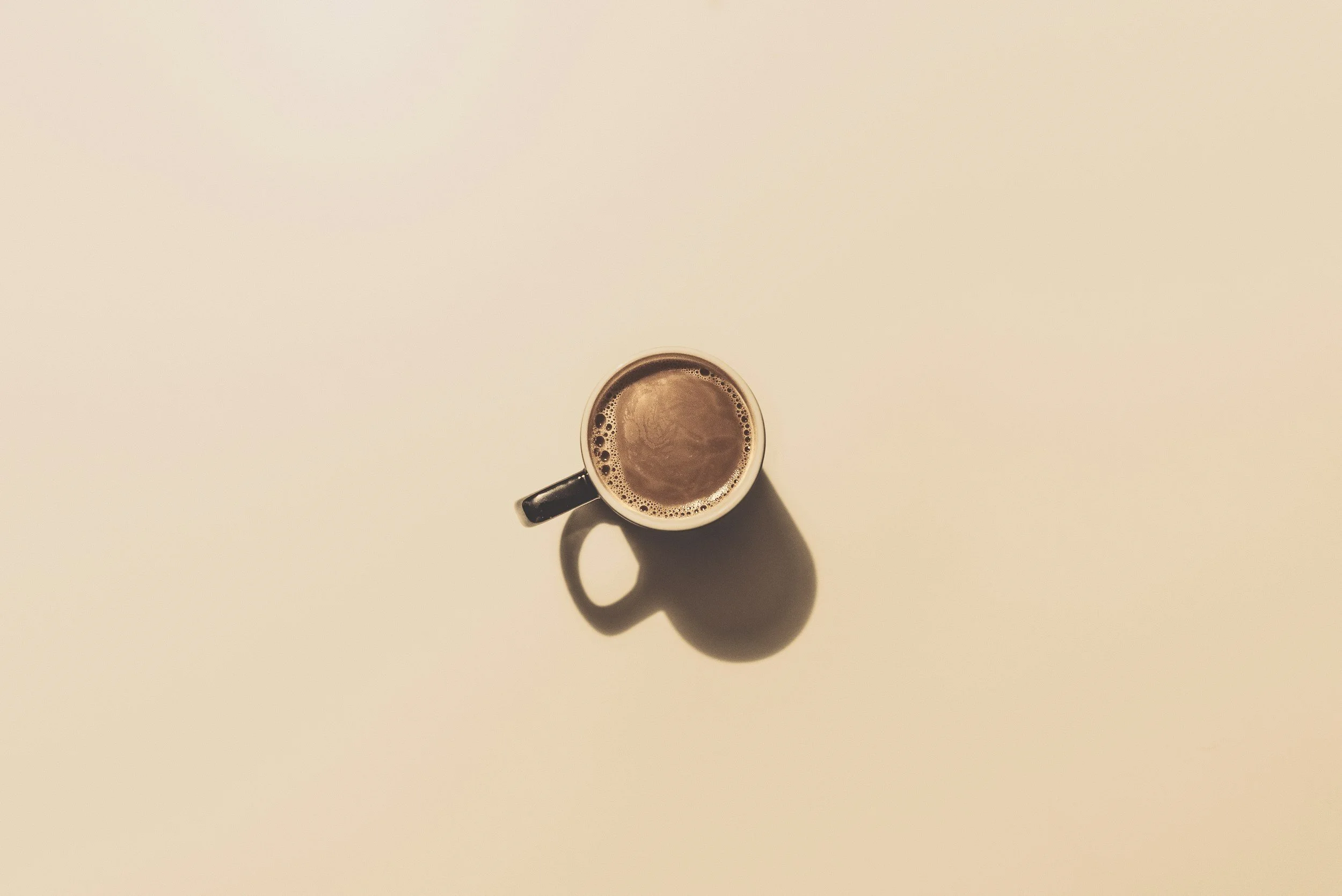IS IT TIME FOR A CAFEINE DETOX?
Are you a caffeine-obsessed, "don’t talk to me before coffee" type of person? Would you even go as far as to say you’re ‘addicted’ to it? And—is that a problem?
A Daily Dose of Caffeine – Are There Any Benefits?
When it comes to coffee, tea, and other caffeinated beverages, the news isn’t all bad. In fact, some studies suggest that coffee drinkers live longer. For example, two large studies conducted in Europe and the USA found that participants who drank two or more cups of coffee per day were 7–18% less likely to suffer a premature death from heart disease, cancer, stroke, type 2 diabetes, and kidney disease.
However, were these positive findings related to caffeine—or something else?
In both studies, decaffeinated coffee yielded the same results, meaning that the health benefits of drinking coffee are more likely related to its antioxidant activity, not caffeine. Coffee is rich in polyphenols—the same antioxidants found in extra virgin olive oil, dark chocolate, and red wine.
Are There Any Benefits Specific to Caffeine?
If you’re a new or non-habitual drinker, caffeine can support improved physical performance, endurance, and exertion by reducing your perception of pain. Caffeine also increases adrenaline and dopamine signalling, which can enhance mood and concentration—if taken in moderation (high doses can cause overstimulation, blurring your senses). Furthermore, some studies suggest that 200 mg of caffeine (approximately two espressos) in non-habitual drinkers can lead to a minor increase in metabolism.
However, these effects are short-lived. Habitual caffeine users develop a tolerance to it, to the point where the only consistent benefits are wakefulness and alertness. Over time, you may find yourself needing more and more caffeine just to achieve the same effect. In fact, regular caffeine intake can downregulate dopamine production, meaning you may need your morning cuppa just to reach a ‘normal’ level of focus.
Are There Any Downsides?
The most common consequences of regular or excessive caffeine intake are insomnia and fluctuating energy levels. It’s a tricky cycle—the more tired we feel, the more we reach for coffee, which gives us a buzz, followed by a slump. So, we reach for another, but it’s too close to bedtime, leading to poor sleep. The next morning, we wake up exhausted… and the cycle continues.
Other signs of excess caffeine intake include:
Anxiety and a rapid heart rate
Irritability
Heartburn and reflux
Stomach upset
Frequent urination
Perhaps you experience these symptoms but haven’t yet identified caffeine as a potential contributor?
When discussing caffeine and health, it’s also worth considering its impact on calorie intake and food choices. Do you add sugar, syrups, or even butter (e.g. ‘bulletproof coffee’) to your drinks? Do you consume large amounts of milk (e.g. lattes or cappuccinos)? Do you often have a biscuit or pastry alongside your coffee? Do you crave sugar once the caffeine buzz wears off? If energy drinks are your caffeine source, consider the added sugars or artificial sweeteners they contain.
Should You Consider a Caffeine Detox?
A two-to-four-week break is enough to reset your caffeine tolerance. Afterward, you can expect to enjoy all the benefits of caffeine without needing as much. This is particularly useful if you suspect caffeine is causing side effects or negatively impacting your nutrition. In fact, experts regularly recommend caffeine detoxes or cycling for these very reasons.
If you’re brave enough to try a caffeine detox, here are the sources of caffeine to be mindful of:
Coffee
Tea (including black, green, and some herbal varieties)
Energy drinks
Cola drinks
Pre-workouts or sports supplements with caffeine
We understand that quitting caffeine is easier said than done! Here are a few tips to help you succeed and minimise withdrawal symptoms:
1. Prepare in Advance
Slowly reduce your caffeine intake in the lead-up to a detox. Decrease your intake by 50% every few days. For example, if you drink two coffees per day, cut back to one coffee per day for three days. Then, reduce it further to one coffee every second day. By the following week, you may be ready for a complete detox.
2. Prioritise Sleep
Many of us drink coffee to combat fatigue. If you prioritise good-quality sleep during your detox, you may be less tempted to reach for a morning latte.
3. Eat Well and Stay Hydrated
If you:
a) Cut back on sugar,
b) Eat a balanced diet that includes lean protein, low-GI carbohydrates, plant fibre, and healthy fats, and
c) Drink enough water,
this will help stabilise your energy levels and reduce caffeine cravings.
4. Fake It Till You Make It
If needed, switch to decaffeinated coffee or tea to ease the transition!
Need Help?
For personalised advice on how caffeine (or cutting back on it) fits into your nutrition and lifestyle goals, speak to your GP or an Accredited Practising Dietitian.
By: Samantha Stuk, Dietitian - Apr 25

